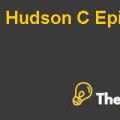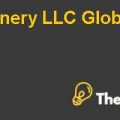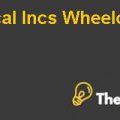Lyondell Case Study Solution
Question 3:
Winners and losers from DPI financing include the commercial banks and investment banks, which have lent secured pre-petition loans to the company. Along with that the 14 DIP lenders under the three facilities are the winners of the proposed DIP financing, as they are at the second priority of the company to pay off. However, the unsecured creditors’ committees are the losers in the DIP financing as they are senior creditors, but would’ veto pay off after paying to secured pre-petition creditors and DPI creditors.Indeed, the objections of ABN AMRO and unsecured creditors’ committees make sense as the lenders under Roll up facility are given extraordinary powers to control the overall DIP financing, and can exploit the agreement to accomplish their own interests. Along with it, the claims of unsecured communities about the justification of tight timeline, excessive control of DIP lenders over operations, financial burdens and payment of interest even after roll up of pre-petition loans at 7%makes huge sense for the company’s ability to be able to pay the debts in such a short time with high regulations over its operations. The concerns of both the parties over DIP financing have lead the company to face certain challenges about the approval of DIP financing.(STREISSGUTH, 2018)
Conclusion
Lyondell Basell is facing huge threats over its existence in the long run. The only way to bring the company back to its position is the re-organization of its operations. The current credit market does not allow a bankrupt company to secure loan for re-organizing its operations, therefore the company has filed bankruptcy to get legal protection. If the company would fully utilize the money coming from DIP financing, and the expectations of the management would be accomplished, than the company would soon revive from the current crisis, and would be able to pay off its pre-petition and DIP creditors.
Exhibits
| DIP Financing | ||||||||||
| Amount | Borrowing Rate | Borrowing Fees | Cash Paid till the end of Period | Amount in Excess of Principal | ||||||
| front End Fee | Exit Fee | Commitment Fee | Principal | Interest | Borrowing Fees | Total | ||||
| ABL Facility | 1.515 | 9.25% | 3.50% | 3% | 1.20% | 1.515 | 0.11 | 0.12 | 1.74 | 0.23 |
| New Money Facility | 3.25 | 12.25% | 3.50% | 3% | 1.20% | 3.25 | 0.32 | 0.25 | 3.82 | 0.57 |
| Roll up Facility | 3.25 | 5.94% | 3.50% | 3% | 3.25 | 0.15 | 0.21 | 3.62 | 0.37 | |
| Total Cash to be Paid | 8.015 | 9.18 | 1.17 | |||||||
Exhibit A: DIP Financing V/s Liquidation
| Liquidation | ||
| Realization Rate | Amount Received | |
| Plant, Equipment and Property | 25% | 3072.25 |
| Account Receivable | 50% | 476.5 |
| Inventories | 50% | 1633.5 |
| Cash and Cash Equivalents | 100% | 406 |
| Deposits With Related Party | 100% | 1091 |
| Short Term Investments | 100% | 169 |
| Prepaid Expenses and Other Current Assets | 100% | 178 |
| Investment in Joint Ventures | 100% | 543 |
| Note Receivable from Related Party | 100% | 835 |
| Goodwill and Other intangibles | 100% | 6971 |
| Other Assets | 100% | 181 |
| Total Cash Received | 15556.25 | |
| Less: Transaction Cost | -2033.78 | |
| Cash Realized from Assets after Transaction | 13522.48 | |
| Less: Payment to Secured Loans | -13006 | |
| Amount Left for Payment of Other Liabilities | 516.475 | |
| Less: Other Liabilities | 14339 | |
| Deficit Amount | -13822.5 | |
This is just a sample partical work. Please place the order on the website to get your own originally done case solution.












